View the PDF version of this report
Introduction
The mentoring programme has been developed and guided by a Steering Group whose membership is representative of Academy Members. The refreshed programme builds on the previous NIHR Academy Mentoring Programme that was delivered by the Academy of Medical Sciences, expanding the programme to support all Academy Members, regardless of professional background. The refreshed programme was launched in February 2021. Each year, NIHR provides the opportunity for 75 matched mentoring pairs, prioritising those from backgrounds or disciplines that may not have previously had access to mentoring. In the first year of the mentoring programme, we launched three cohorts. This report focuses on Cohort 2 (2021).
The programme aims to support the academic and career development of NIHR postdoctoral communities by:
- Extending the NIHR mentoring programme to postdoctoral award holders from disciplines and professional backgrounds which may not have a strong mentoring tradition or may not have had access to programmes such as this in the past.
- Promoting interdisciplinarity working; mentees are able to seek a mentor from a cognate or complementary discipline or professional background, where appropriate.
- Supporting mentoring relationships between individuals from different organisations and institutions.
- Promoting equality, inclusion, and diversity through engagement with, and learning from, under-represented groups.
How we define mentoring:
We define mentoring as a non-directive developmental relationship; mentors support mentees to learn and grow. The relationship is often two-way: the mentor also develops. Mentors often draw on shared knowledge, skills, competencies and behaviours; they call on the skills of questioning, listening, clarifying and reframing. Mentors tend to have the organisational and contextual experience relevant to the mentee’s organisational and career-related system, and typically mentoring relationships tend to be longer-term than coaching.
We base our definition on the European Mentoring and Coaching Council (EMCC) approach to mentoring. EMCC Global recognises that the practice of mentoring is dynamic and evolving in a rapidly changing global context. In 2021, the EMCC Mentoring Group, was tasked by the Global Executive Board (GEB) to review the existing definition and make recommendations for an updated understanding. The Review Group adopted a triangulation approach, which included a literature search, focus groups and survey of members. The findings reflect and incorporate the perspectives of the wider mentoring community, including views from inside and outside the EMCC’s global community.
EMCC Global definition of mentoring:
“Mentoring is a learning relationship, involving the sharing of skills, know ledge, and expertise between a mentor and mentee through developmental conversations, experience sharing, and role modelling. The relationship may cover a wide variety of contexts and isan inclusive two-way partnership for mutual learning that values differences.”
Programme methodology:
We adopted the EMCC Global International Standards for Mentoring and Coaching Programmes (ISMCP) as an overarching framework for the design, implementation and evaluation of the mentoring programme. The ISMCP is an independent accreditation awarded to organisations designing, delivering and evaluating mentoring and/or coaching programmes either ‘in-house’ or externally. It is an integral and essential step on the path to establishing the professional credibility and status of good mentoring programme management, ensuring programmes are:
- Thoughtfully designed
- Systematically managed
- Significantly contributing to the development of participants, strategic drivers of the organisation and wider stakeholder objectives
The purpose of the ISMCP is to provide a consistent and globally accepted benchmark of good practice in mentoring and coaching programme management. The application of the programme framework enables NIHR to:
- Legitimise our mentoring programme against a recognised standard
- Strengthen and improve the mentoring programme through rigorous ongoing review
- Continue to build the evidence for developmental outcomes through mentoring, positively influencing key stakeholders
- Identify opportunities to promote mentoring development activity internally and externally
Programme timeline
Cohort 2
|
Expression of interest |
Orientation |
Match confirmed |
CPD |
Interim survey open and close | ||||
|---|---|---|---|---|---|---|---|---|
| 22 February 2021 | April 2021 | May 2021 | June 2021- May 2022 | October – November 2021 | ||||
|
Interim evaluation report |
Summative survey open and close |
Summative matched pair interviews |
Final report | |||||
|---|---|---|---|---|---|---|---|---|
| December 2021 | 12 July - 6 August 2022 | 7 June – 8 July 2022 | March 2023 | |||||
Recruitment process and matching
The mentoring programme uses expressions of interest for both mentees and mentors to apply to the programme, the dates and this information cascades to prospective applicants via the NIHR Infrastructure. All potential mentees and mentors are invited to submit an expression of interest within the application window. This application can be for the upcoming cohort or a later cohort depending on their preferences.
- Mentees are NIHR Academy Members who hold an NIHR postdoctoral award and/ or hold a postdoctoral position and are based in NIHR Infrastructure or in an NIHR School
- Mentors are NIHR Academy Members or Associate Members who are NIHR research leaders
The matching process is broken down into three stages, at stage one we review the matching criteria points that were selected in the expression of interest form. The matching criteria consists of eleven points that all applicants are asked to indicate which are most important to them:
- Balancing professional and academic work
- Career progression
- Career transition
- Research funding
- Developing a global/international research profile
- Networking/building relationships
- Work/life balance
- Diversity and inclusion
- Leadership development
- Research practice
- Managing research teams
We then move onto reviewing the free type responses for any additional preferences and supporting information, for example if a mentee would like to be matched with a mentor in a specific field or with specific experiences. Finally, we conduct a review at stage three of mentee and mentor preferences to ensure they match up and do not have any conflicts of interest before the match is confirmed.
Training and continuing professional development
Attendance at orientation training is compulsory for all mentees and mentors. It is delivered via an online interactive webinar, facilitated by the Programme Manager and external Mentoring Consultant. The orientation covers the following key topics:
- The programme team and their roles
- An overview of the aim and objectives of the programme
- The role of the mentor and mentee
- Ethics, confidentiality and key documentation
- Professional development offer
- Programme evaluation approach, phases and methods
Following the mentoring programme orientation, mentees and mentors are invited to attend a broad range of continuing professional development (CPD) optional interaction workshops. The purpose of the CPD workshops is to provide ongoing support at key transition points in the mentoring relationship, focusing on knowledge, skills and behaviours. The overall objective of the CPD workshops is to enable participants to develop effective and successful mentoring relationships.
The programme team developed additional workshops, based on interim feedback from mentees and mentors to support specific topic areas such as work-life balance, resilience and transitioning from mentee to mentor. Mentees and mentors are able to attend ‘drop-in’ sessions to meet the programme team on a monthly basis to address any aspect of their mentoring practice.
In line with EMCC Global ISMCP requirements, mentors are also provided with ongoing reflective practice support with peer mentoring workshops, facilitated by a suitability qualified and experienced external mentoring consultant. Mentees are also able to attend a dedicated reflective practice forum with their peers to discuss any aspect of their mentoring programme experience and/or broader professional development related topics.
Programme evaluation
The mentoring programme has a robust evaluation framework in place which supports the continuous improvement of the programme, the collation of evidence of achievement against the programme’s aim and objectives. Regular updates are shared with key stakeholders and identification of lessons learned informs the ongoing development of the mentoring programme, potential future programmes and wider audiences. The evaluation consists of two phases, the phase one interim evaluation and phase two summative evaluation.
Phase one
This took place five to six months following the launch of the programme and comprised a light touch temperature check survey for all participants, providing a feedback opportunity and to address any challenges which may arise. Cohort 2 interim evaluation opened 24th November and closed 12th December 2021. Cohort 2 interim evaluation received 21 responses, 11 mentors and 10 mentees: overall response rate of 36%. Cohorts 1 and 2 responses were combined due to the one month gap between the launch date and similarity of responses.
Phase two
At the end of the programme, participants are invited to complete an in-depth survey, focusing on their mentoring relationship experience and outcomes. For cohort 2 the response rate was 32% (n=11) for mentees and 35% (n=11) for mentors. Four matched pairs attend semi-structured interviews, providing the opportunity to create in-depth case study exemplars. Cohort 2 interviews were conducted between 20th June and 18th July 2022 by an External Mentoring Consultant. The approved transcriber produced 94 pages of transcription across 4 matched pair interviews, ranging between 7 pages and 16 pages per interview. We followed the same process subsequent to the interviews as outlined for cohort 1.
In addition to the two phases outlined, we collect feedback at various touch points, including check-ins with participants at regular intervals and informal feedback via the continuing professional development sessions.
Key outcomes
We share a number of key outcomes from cohort 2, comprising data collected throughout the programme. The statistics cited in this section are drawn primarily from the summative surveys. We received 45 Mentee expressions of interest and 41 Mentor expressions of interest We created 31 matched pairs. No mentors or mentees moved cohorts.
Satisfaction with mentee – mentor match
- 100% of mentors and 100% of mentees were either very satisfied or satisfied with their mentoring match.
Interdisciplinary mentoring relationships
-
73% of mentors and 64% of mentees described their mentoring relationship as interdisciplinary
Continuing in the mentoring relationship beyond the programme
- 64% of mentors and 55% of mentees will be continuing in their mentoring relationship
Continuing to engage in the mentoring programme
- 82% of mentors intend to support another mentee in a future programme cohort
Transitioning from mentee to mentor
- 82% of mentees intend to apply to be a mentor in a future programme cohort
Number of CPD sessions facilitated and participant attendance
- 74 CPD workshop topic sessions were delivered between June 2021 and July 2022.
- Overall 260 Programme participants attended CPD sessions between 2021 and 2022
- 64 Programme participants attended CPD sessions in 2021, some attended multiple sessions
- 196 Programme participants attend CPD sessions in 2022, some attended multiple sessions
Most popular CPD sessions for mentees and mentors
- The most popular CPD workshop topic sessions for both
mentees and mentors were work-life balance, resilience,
maintaining momentum, developing an effective mentoring
relationship, roles of the mentor and mentee, and beginning
the mentoring relationship
Overall view of the CPD and initial programme orientation
- The summative survey confirmed 100% of mentors and mentees felt the CPD sessions were beneficial during their mentoring relationship
Number able to build trust with their mentee or mentor
- 100% of mentors and 100% of mentees felt they were easily able to build trust
Number achieving mentoring relationship objectives
- 100% of mentors and 100% of mentees felt the programme met all or most of their objectives
Satisfaction with the mentoring programme
- The interim survey shows that 100% of mentors and 95% of mentees felt that the programme met their expectations. At the summative survey 100% of mentors and 91% of all mentees felt the programme met all or most of their expectations.
Areas of impact
In this section we identify key areas of impact, including the mentoring relationship focus, key themes discussed in the mentoring relationship and the perceived value of the mentoring relationships and programmes. To illustrate the areas of impact further, in the next section we present five matched pair mentor and mentee case studies. They provide further in-depth exploration of the mentoring relationships.
Mentoring relationship focus
Through the programme evaluation mentees and mentors described the overall focus of their mentoring relationship was career planning and progression, building capacity for fellowship applications, research funding and outputs, networking and building relationships, navigating the academic environment including politics and self-presentation, managing work-life balance and leadership development.
Key themes discussed in the mentoring relationship as described by mentees andmentors included:
- Career development and transition
- Work-life balance
- Research and funding
- Leadership and management
Perceived value of the mentoring and programme
Our mentoring programme has had a significant impact on the mentees, both personally and professionally.
Personal
- At a personal level, the mentoring increased their self-confidence, awareness of self-care and managing work-life balance practices
Professional
- As early career professionals, the mentoring conversation with experienced senior practitioners have helped mentees to explore career options and seek guidance on the next stage of their career. Some mentees expressed that they felt hugely supported in their career transition and learnt ways of networking, applying for research grants, managing the work environment, building collaborative relationships and leadership capacity
Mentees described how the mentoring has supported them in both the career and psychosocial space:
- ‘It was quite good to learn and share experience, how to move forward and how sometimes one had to sacrifice or give up something important ... a clinical role, just to make sure that the research side is progressing well. That was important.’ (Mentee)
- ‘Trying to balance the clinical side of things and also the work life side of things.’ (Mentee)
- The aspects of the mentoring programme which were most helpful in supporting the mentoring relationships included:
- 'The matching worked well.’ (Mentor)
- ‘The training was helpful.’ (Mentor)
- ‘Excellent match.’ (Mentee)
The overall view of the mentoring programme was positive, illustrated by the following mentee survey comments:
- ‘Initial sessions setting the scene, saying what to expect, encouraging thought about what I wanted to get out of it and setting
objectives.’ (Mentee) - ‘The additional skills sessions - I think these really helped me plan for and get the most from my mentoring meetings and gave me tools for use in everyday life. They were really valuable and I think I would have gained from attending many of these (that were less specifically about mentoring) even if I was not associated with the mentoring programme - for example the work/life balance and resilience sessions.’ (Mentee)
A significant benefit was the independence of the mentor to the mentee; the independent and objective guidance and the unbiased ‘listening ear’ was highly beneficial:
- ‘Having the opportunity to discuss my career with an experienced academic has been very valuable. I appreciated the time given and the support received so far. Having a mentor outside my institution
has been very beneficial as it created a safe space for me to open up about various concerns.’ (Mentee) - ‘Someone neutral from a different organisation would be really helpful to give a balanced view on things ... and non-biased and objective advice.’ (Mentee)
The following mentee and mentor shared the most beneficial aspect of the mentoring relationship:
- ‘The good mentor I had was in psychology, which is a much more established academic field than medical education, which was useful.’ (Mentee, summative survey)
- ‘Different professional group and different clinical area. It brought an interesting approach to the discussion, but many aspects / challenges are common (e.g. time and people).’ (Mentor, summative survey)
For some mentees, the mentoring provedtimely as t hey were potentially approaching a significant transition and/or deadline, as the following comments illustrate:
- ‘I really wanted to make sure that my development as an independent researcher was following the track so I could continue
to move forward ... it was really the transition that I really wanted to focus on.’ (Mentee) - ‘‘What is he going to do differently, ... how is he getting it altogether.... if he doesn’t get Plan A, what’s Plan B, what’s Plan C, what’s Plan D ...?’ (Mentor)
Our mentoring programme has enabled mentors to build their emotional intelligence and develop their own self-insight around the holistic practice of mentoring, supporting their mentees’ personal and professional development, including confidence building, leadership positioning and self-presentation, successfully navigating a postdoctoral career. The formalisation of the mentoring relationships and the accompanying training and continuous professional development webinars were viewed as effective learning and reflective spaces by several mentors. As most of the mentor-mentee matches are across interdisciplinary health research areas, mentors also widened their knowledge and gained further insights into new areas of work.
For mentors and mentees, the benefits have been broad, encompassing a sense of personal satisfaction, development of key mentoring skills and connectivity:
- One mentee described the most valuable aspect of the mentoring relationship was the networking opportunity; he emphasised that ‘especially finding a collaborator in my area of interest where I am able to research at an international scale ... it’s hard to find it and it’s hard to develop that sort of collaboration especially for very early researchers, people who have just started doing research.’ Thinking about his future career, he added, ‘I think I will be able to help and
support the next generation or the future researchers, for instance, having my own PhD students working under my supervision’. - Another mentee shared: ‘My mentoring experience has been fantastic. My mentor has helped me to recognise my worth and has gently encouraged me to stretch outside of my comfort zone.’
- ‘My mentor connected me with other Clinical Academics in my clinical community. She also shared her experience of other colleagues who have crafted a career similar to the one I am aiming for.’
The survey and matched pair interview evaluation data highlights that the mentoring programme and the mentoring relationships are having a significant impact on both the mentee and mentor learning and growth, whilst addressing important developmental topics.
Cohort 2
Pair 1:
Mentor – Professor Paramjit Gill
Paramjit is a Professor of General Practice & GP. After qualifying from Southampton University Medical School, Paramjit worked in a number of hospital and community posts before entering academic General Practice. Before moving to Warwick Medical School, Paramjit worked at Rotton Park Medical Centre, Birmingham for 18 years and the practice was rated outstanding by the Care Quality Commission. He stopped clinical practice in 2022. Paramjit is involved in a number of national and international
studies, including several NIHR funded research projects. He received the Senior Investigator Award in 2020.
Mentee – Dr Muhammad Rashid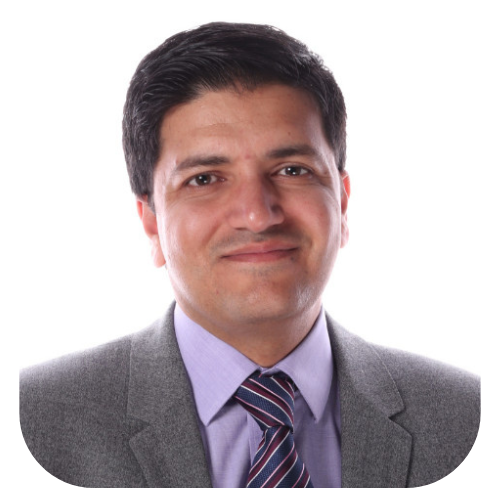
Muhammad is a NIHR Academic Clinical Lecturer in Cardiology at Keele University. His skills and expertise include Clinical Cardiology, Interventional Cardiology, Acute Coronary Syndrome and he has engaged in systematic reviews, Meta-Analysis and Clinical Trials.
Drivers for joining the mentoring programme
Paramjit joined the NIHR Mentoring Programme to ‘support and explore opportunities for career progression which his mentee may not have considered so far’. Muhammad was keen for a mentor who was outside his sphere of current work and therefore able to bring an independent and neutral perspective to his areas of interest. His aim was to build a mentoring relationship with an established senior medical academic with a shared area of interest, such as in ‘big data research.’
Relationship focus and key topics
The mentoring relationship has spanned over 12 months and Paramjit and Muhammad had 4 to 5 mentoring conversations during this time on Teams and some contact via emails. Muhammad’s mentoring goals were three-fold: first, as he was transiting from an early career researcher to becoming an independent researcher, career progression was a key area, both personally and professionally; second, considering routes and options for future Fellowship grant applications and the third, exploring collaborations within the institute and networks outside the institute both within his specialist area and as well wider opportunities. Paramjit highlighted that he encouraged Muhammad to lead the mentoring conversations and they together explored his areas of interests as well as opportunities to widen his networks for international research collaborations. The main topic of the mentoring conversation centred on career progression, including options of future roles as well as funding options. Related areas of discussion included guidance on academic challenges and exploring of teaching opportunities to widen experience and strengthen Muhammad’s CV.
Relationship satisfaction
Both confirmed that they were a good match in several aspects. Muhammad highlighted that his mentor was able to help him to consider career options more widely and share experience and knowledge of areas outside his immediate current experience. Paramjit offered an example of a shared contact with his mentee for a viable international research collaboration.
Mentoring outcomes
It was evident from the research interviews that the relationship was mutually beneficial. Muhammad confirmed that he has benefited personally and professionally from the mentoring relationship. One specific area was confidence building; he reflected that the mentoring conversations gave him the opportunity to talk about his background and present his research ideas which was a positive experience. He is now
engaged with new research collaborators and able to talk about his research with confidence. Recognition of his work both by his mentor and the research partners significantly built his self-esteem. He reflected, ‘overall, I felt very confident, I felt good in myself that my work is definitely of good quality.’ He also acknowledged that his mentoring conversation with Paramjit enabled him to develop a broader vision of an academic research career in medicine. Paramjit helped him to think about
where he would like to be in the next 10-20 years; this led to useful exploration of funding challenges and alternative career progression. Here, motivation was another mentoring outcome. At a personal level, conversations about work-life balance as well as balancing clinical duties with research commitments, which Muhammad referred to as ‘work-to-work balance’ were beneficial for him. He observed, ‘It was quite good to learn and share experience, how to move forward and how sometimes one had to sacrifice or give up something important ... a clinical role, just to make sure that the research side is progressing well. That was important.’
Paramjit especially referred to his listening skills, which as a GP he has developed over many years as well as framing questions to explore options and offer challenges to help Muhammad to seek solutions through this two-way relationship. He also emphasised building Muhammad’s mindset to own the mentoring conversations by highlighting that ‘I am not your teacher, your trainer, your professor ... it is actually about you and what you want from me.’ He also shared his own experiences and long career journey as a senior academic clinician as appropriate during the mentoring conversation. This combined directive and non-directive mentoring approach contributed significantly to building Muhammad’s confidence as mentioned above.
Overall reflections
Muhammad confirmed that the most valuable aspect of the mentoring relationship was the networking opportunity; he emphasised that ‘especially finding a collaborator in my area of interest where I am able to research at an international scale ... it’s hard to find it and it’s hard to develop that sort of collaboration especially for very early researchers, people who have just started doing research.’ Thinking about his future career, he added, ‘I think I will be able to help and support the next generation or the future researchers, for instance, having my own PhD students working under my supervision’. Paramjit felt that he was able to offer a space for an ‘alternative conversation’ at a stage in his mentee’s career when he was considering career progression, particularly progression in academia as a clinician.
Overall, the mentoring relationship enabled career progression, networking to expand research opportunities and enhancing confidence to maximise the mentee’s potential.
Pair 2:
Mentor – Dr Michael Clark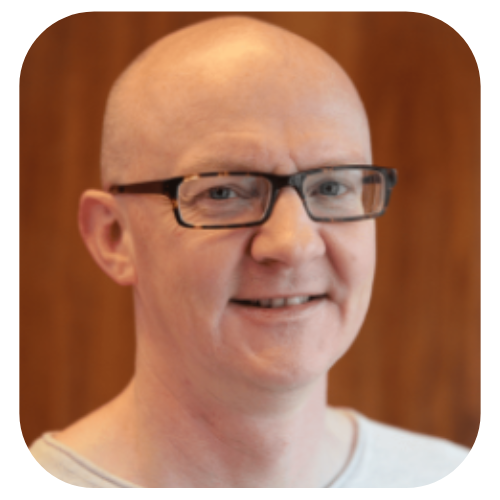
Michael is an Associate Professorial Research Fellow within CPEC at LSE and Research Programme Manager for NIHR School of Social Care Research at Care Policy and Evaluation Centre. He has worked at local, regional and national levels undertaking and managing research. His research interests include mental health, dementia, public involvement in research, and arts and care. He also has an interest in the interfaces between research, policy and practice and issues of implementation. Michael is the Managing Editor of the Journal of Long-term Care.
Mentee – Dr Naoimh McMahon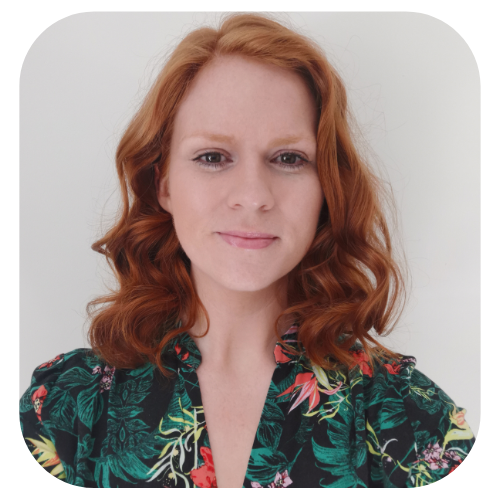
Naoimh trained as a healthcare professional (physiotherapist) and her interests, over time, have moved towards public health and social inequalities in health. She completed her PhD at the University of Central Lancashire in 2018 funded by the NIHR Applied Research Collaboration Northwest Coast. In 2020, she was awarded a NIHR School for Public Health Research Postdoctoral Launching Fellowship to progress her research ideas and develop further funding applications. She has recently started a Wellcome Trust Research Fellowship in Humanities and Social Science which will run from May 2022 to May 2025.
Drivers for joining the programme
Naoimh wanted a sounding board to explore her current work activities and alternative career options. Michael was keen to experience the mentoring programme, develop his coaching and mentoring capabilities, understand the mentoring process and the programme structure as a member of the mentoring programme steering group. He also wanted to provide mentoring specifically to build capacity and support social care
researchers.
Relationship focus and key topics
Michael and Naoimh started the mentoring relationship in August 2021 and had 4 mentoring conversations over 11 months. Although the NIHR mentoring period has ended, they have not formally closed the relationship but left it open so Naoimh can reach out for mentoring support in the future. Michael observed that a broad overarching theme within the mentoring conversations was on career development and future funding options. Another area was the focus on building a strong network both to promote her research work but also to engage with like-minded academics with a view to future research collaborations.
Relationship satisfaction
The interviews highlighted that Michael and Naoimh built an open and informal relationship, and they were both pleasantly surprised by what they described as a very good match. Naoimh found that Michael was ‘open minded and he had an interest in more qualitative research methods, social sciences and big picture questions.’ She observed that her mentor was ‘very happy to let me speak and get it all off my chest and then ask me some useful, challenging, constructive questions about things that maybe I hadn’t been thinking of or they were options that I had inadvertently closed down for myself or ruled out. So, he was very good in that sense.’ Michael affirmed that he offered to be a sounding board to help Naoimh explore her current career context.
They both agreed that the interdisciplinary aspect of their work context and that Michael was in no way intimately connected with Naoimh’s work and university were positive aspects of this relationship, enabling diverse
and open conversations.
Mentoring outcomes
The mentoring outcomes were varied: opportunity to explore and reflect on feedback on a paper with a mentor, enabling wider perspectives and ideas; opportunity for experience in local government alongside
commitment to research and the Wellcome Trust Fellowship as well as future opportunities for funding and grants.
Overall reflections
The interviews highlighted that the relationship was mutually beneficial. Naoimh confirmed that her mentoring expectations were fully met. Naoimh reflected that the open questioning and the non-judgemental and non-directive approach really helped her to explore her choices and built her self-confidence in her own career trajectory.
Overall, both Michael and Naoimh had a very positive mentoring experience. Naoimh concluded that the relationship offered an opportunity to ‘speak to someone new and then articulate my ideas out aloud ... Michael helped me to progress or rethink so it was a safe space to talk through things.’ Michael’s style of mentoring with a coaching approach worked well as he concluded that, ‘Naoimh knew a lot of the answers herself ... just being able to air her thoughts and talk through these
is what she needed.’
Pair 3:
Mentor – Dr Liz Lees-Deutsch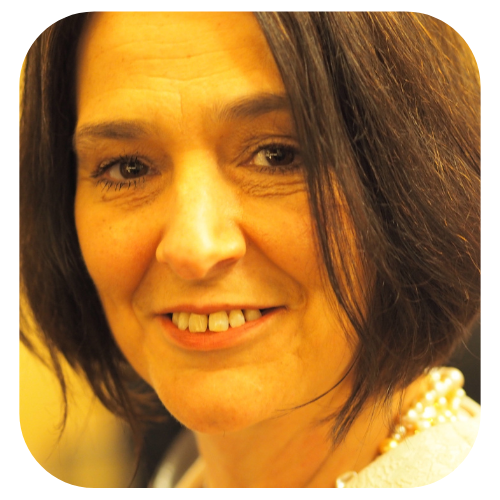
Liz’s career has spanned acute, intermediate and primary care since completing her RGN training in 1991. Over the past 20 years she has developed an international profile for audit, quality improvement and research, particularly the translation of this into practice. She has editorial roles in two medical journals - Acute Medicine Journal and International Journal of Nursing Studies Advances and she is a reviewer for several other journals. She is an elected member of the Society for Acute Medicine Research Committee, contributing to large grant applications; an Honorary Lecturer University of Birmingham (UoB), supervising PhD and MSc students and has received a Life Fellowship Award from Society for Acute Medicine for leading multidisciplinary care developments.
Mentee – Dr Louise Strickland
Louise is deputy director for nursing and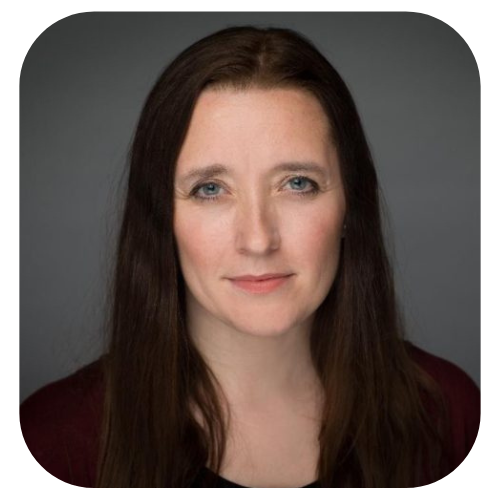 midwifery research and innovation at Oxford University Hospitals NHS Foundation Trust and a postdoctoral Clinical Academic Nurse Researcher based at the Nuffield Department of Orthopaedics, Rheumatology, and Musculoskeletal Sciences (NDORMS), University of Oxford. She previously worked as a postdoctoral clinical trials researcher with Professor Sion Glyn-Jones based in the Botnar Research Centre.
midwifery research and innovation at Oxford University Hospitals NHS Foundation Trust and a postdoctoral Clinical Academic Nurse Researcher based at the Nuffield Department of Orthopaedics, Rheumatology, and Musculoskeletal Sciences (NDORMS), University of Oxford. She previously worked as a postdoctoral clinical trials researcher with Professor Sion Glyn-Jones based in the Botnar Research Centre.
Drivers for joining the programme
Through the NIHR 70@70 Programme, Liz has cultivated a clear vision to improve the capability of nurses to undertake research, from undergraduates onwards. She has leveraged innovative enquiry of evidence to impact knowledge translation into practice and developed a writing, publishing and editing module through a digital platform.
She is committed to facilitating the talents of aspiring clinical academics through the NIHR Mentorship Scheme and masters/pre-doctoral programmes. She has prior experience of mentoring and is keen to share this experience on a clinical academic research pathway with others on similar career trajectory.
Louise was looking for a successful clinical academic as a mentor who was happy in their career, passionate and keen to make a difference and fulfilled by what they were doing. Louise observed that, ‘I really wanted to make sure that my development as an independent researcher was following the track so I could continue to move forward ... it was really the transition that I really wanted to focus on.’ For Liz, the mentor role was a good opportunity to invest back as she had received significant funding from NIHR. She also wanted to ‘get a greater understanding of some of the issues of the mentee’ and share her own experiences so ‘someone else can capitalise on it.’
Relationship focus and key topics
Liz and Louise started the mentoring relationship in July 2021, and this is continuing at present. During this period the pair met approximately 6 to 7 times and had a few telephone conversations. They are committed to the relationship beyond the one-year period of the NIHR Mentoring Programme. Louise was offered this mentoring opportunity as a part of her role at the Biomedical Resource Research Centre which is a Hub for NIHR in Oxford. In transiting to an independent researcher, going through the process of making her fellowship application, she was keen to avail
this mentorship support for her overall career progression.
Liz and Louise started the mentoring relationship in July 2021, and this is continuing at present. During this period the pair met approximately 6 to 7 times and had a few telephone conversations. They are committed
to the relationship beyond the one-year period of the NIHR Mentoring Programme. Louise was offered this mentoring opportunity as a part of her role at the Biomedical Resource Research Centre which is a Hub for NIHR in Oxford. In transiting to an independent researcher, going through the process of making her fellowship application, she was keen to avail
this mentorship support for her overall career progression.
Relationship satisfaction
Both Liz and Louise agreed that they were very well matched. Louise commented, ‘I was fortunate enough to be matched to Dr Liz Lees-Deutsch and this has just been terrific ... she has been through similar challenges even though there are differences in our career path ... so it felt really safe going into my first formal mentoring relationship.’ Liz also observed, ‘I think one of the reasons why she specifically came to me was because she is a clinician and wanted to cement her research background.’
Mentoring outcomes
Louise empathically confirmed that her mentor was able to support her 100% on the challenges she has raised. She has felt supported and guided in her decision-making and this has built her confidence in making
appropriate career choices. When asked what was most valuable about the relationship, Louise pointed out that it was getting to know her mentor as a person, and she has looked forward to her mentoring meeting over the last year both personally and professionally. Liz also valued that Louise was moving forward with her ideas and progressing her career and any support and influence she was able to offer felt very positive.
Overall reflections
the mentoring relationship was highly effective and offered Louise a safe space to explore the next steps in her career openly and honestly. Louise confirmed that her mentor offered her time generously and showed genuine interest and curiosity throughout the mentoring relationship. She referred to the reassurance and nurturing aspect of the mentorship more
than once during the interview.
Liz also shared her real-life experiences which were relatable in Louise’s context to enable her to reflect and consider wider perspectives. Occasionally, the mentoring conversations were more directive: ‘I definitely vented and asked for a few words of guidance at different times when I had some challenging situations, and she was always very supportive and let me vent and gave me some new possible solutions around it and how she’d handled different situations too as she started out on her journey as well.’ Louise also pointed out that her mentor was a ‘very good listener ... allowed me time ... she really took an interest and I felt very nurtured and cared for.’
Liz also reflected on the open, honest conversations with her mentee and her own practical and pragmatic approach as a mentor. She observed that Louise has become more reflective over the year, focusing on the relational aspect of contexts and situations. She had also started to prioritise and set herself more realistic targets. Overall, both Liz and Louise had a very positive experience. Liz was able to support Louise to explore her current and future options, with a practical and pragmatic approach, which was a good fit for Louise and her needs.
Pair 4:
Mentor – Prof Debbie Sharp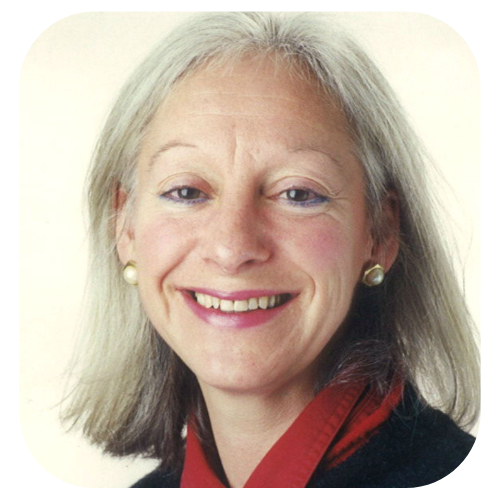
Debbie is a Professor of Primary Health Care at the University of Bristol (Centre for Academic Primary Care). She is nearly an Emeritus – but not quite. She set up the Primary Health Care Unit in Bristol, as it was at the start, in 1994, with about 5 members of staff and stepped down as head in 2011, when there were over 60 members of staff including several professors. Her post was originally set up to develop GP teaching in Bristol with the arrival of the GMC Tomorrow’s Doctors and as a result of that played an active role at the GMC – on council and the education committees. But research was and is her passion – originally in women’s mental health and then more broadly in primary care health services research. Debbie was until recently the head of the School of Clinical Academic Training at the Severn Deanery responsible for over 80 academic trainees in all specialities focussing on career development and mentorship. She has had many roles with SAPC including being secretary of the HODs group and Chair of SAPC.
Mentee – Dr Stephen Lim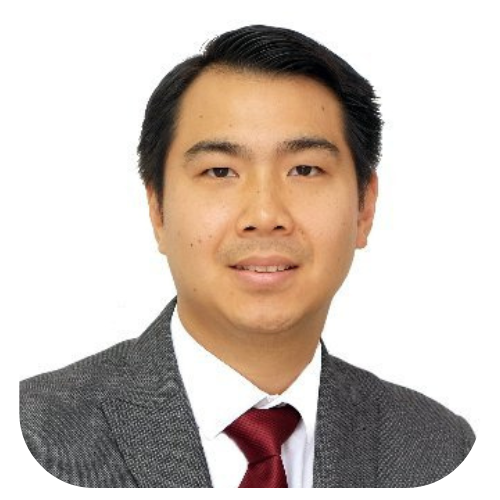
Stephen is a Clinical Lecturer and honorary specialist registrar in Geriatric Medicine in the Faculty of Medicine at the University of Southampton. He completed his medical studies at the University of Southampton in 2010 and continued his medical training within the Wessex deanery. He undertook research looking at interventions to increase physical activity among hospitalised older people and completed his PhD in 2018 and was appointed as a NIHR Clinical Lecturer in Geriatric Medicine. Stephen is actively involved as a member of the British Geriatrics Society and served as chair of the BGS Trainees Council from 2017-2019. His research interests are in physical activity, nutrition, deconditioning and sarcopenia.
Drivers for joining the programme
Stephen joined the NIHR mentoring programme to receive support in career progression, research funding and work life balance. More specifically, Stephen joined the mentoring programme to gain advice and support on his clinical academic pathway, focussing on his career progression. As he put it, he was ‘trying to balance the clinical side of things and also the work life side of things’’ He was keen to have a mentor outside his own institution as he felt that ‘someone neutral from a different organisation would be really helpful to give a balanced view on things ... and non-biased and objective advice.’ He was also looking for a mentor with experience in carving a clinical and academic pathway and having to balance both aspects of that career. Debbie, a senior academic, had significant experience of mentoring and is committed to supporting the career development of others as she, ‘likes to see good people succeed in our field.’
Relationship focus and key topics
Debbie and Stephen’s mentoring relationship spanned over a year, between June 2021 to June 2022 and during this period they met approximately every 2 months. Although the formal NIHR mentoring period has ended, they have kept the relationship open and continue to keep in touch through email and zoom meetings. The focus of the mentoring was on Stephen’s career planning and progression, including his NIHR Advanced Fellowship application. The main topics of discussion were clinical leadership, securing an academic post with the university and/or hospital, pros and cons of trying to be a clinical academic, work-life balance and securing the Advanced Fellowship.
Relationship satisfaction
They both confirmed that they were well matched. It was evident from the research interviews that the mentoring relationship was healthy, helpful and productive. At the same time, it was also apparent that both Debbie and Stephen had built a good rapport during this period. Stephen highlighted that Debbie demonstrated all the good skills of a mentor and more. He pointed out that she was ‘non-judgemental, open-minded, a good listener ... she didn’t just jump in with advice but actually gave me time to chat about things before asking more questions or actually explicitly offering some guidance.’ Debbie observed that as Stephen was applying for the fellowship for the second time, her input specifically focused on ‘what is he going to do differently, .... how is he getting it altogether.... if he doesn’t get Plan A, what’s Plan B, what’s Plan C, what’s Plan D ...?’
Mentoring outcomes
With the support and encouragement of Debbie, Stephen successfully secured a NIHR Advanced Fellowship award to further develop his research programme and clinical academic career.
Overall reflections
Overall, the relationship was a two-way process with both taking the lead on conversations as required. Stephen reflected that the mentoring relationship was ‘bi-directional but more so from me in terms of what the aims or goals I wanted to discuss ... but there were times that Debbie would drop an email and say, oh, we’ve not met for two months, and she would just get a date in ... so, I think it’s both ways.’ The interviews with both Debbie and Stephen also highlighted that the relationship was highly productive as Debbie had the experience and expertise and a senior clinical academic to be the perfect ‘sounding board’ for Stephen to reaffirm things he was doing, offer gentle encouragement as well as explore other career options.
Stephen concluded that he benefited both personally and professionally from this relationship: firstly, he received a lot of reassurance about what he was doing which confirmed that he was on the right path to achieve his career goals; second, the independent and objective guidance and the unbiased ‘listening ear’ was highly beneficial. Overall, both validated that the mentoring relationship was a pleasant, enjoyable and helpful experience. From Debbie’s perspective, as mentoring relationships should continue for as long as the mentee wants it, this relationship will go on with lots of very informal contact as well as more formal mentoring meetings as appropriate. For Stephen as the mentoring relationship has kept him on track and motivated him along the way, this ongoing relationship will continue to support his personal and professional growth and development.
Summary
At the beginning of the report, we set out four programme objectives. We are delighted to share that we have:
- Extended the NIHR mentoring programme to postdoctoral award holders from disciplines and professional backgrounds which may not have a strong mentoring tradition or may not have had access to programmes such as this in the past
- Promoted interdisciplinarity working; mentees are able to seek a mentor from a cognate or complementary discipline or professional background, where appropriate
- Supported mentoring relationships between individuals from different organisations and
institutions - Promoted equality, inclusion, and diversity through engagement with, and learning from, under-represented groups
The first and second cohorts of the mentoring programme have been a huge success, fostering a nurturing and supportive environment at a crucial and challenging time in many colleagues’ lives. Unprecedented challenges and constraints influenced every aspect of the mentoring programme and the mentoring relationships.
Our cohort programme evaluation demonstrates that mentees and mentors spent time cultivating knowledge and skills in career planning and progression, building capacity for fellowship applications, research funding and outputs, networking and building relationships, navigating the academic environment including politics and self-presentation, managing work-life balance and leadership development.
Research shows us that the most enriching mentoring relationships are those where there is reciprocity and mutual learning. Our programme illustrates the power of mentoring to cultivate mutually beneficial mentoring relationships where the positive impact reverberates beyond the mentoring relationships and programme.
So many mentoring programmes are reliant on goodwill and volunteerism, our programme is supported by the voluntary contribution of mentors and many active Steering Group members who willingly give their time in service of others – thank you.

